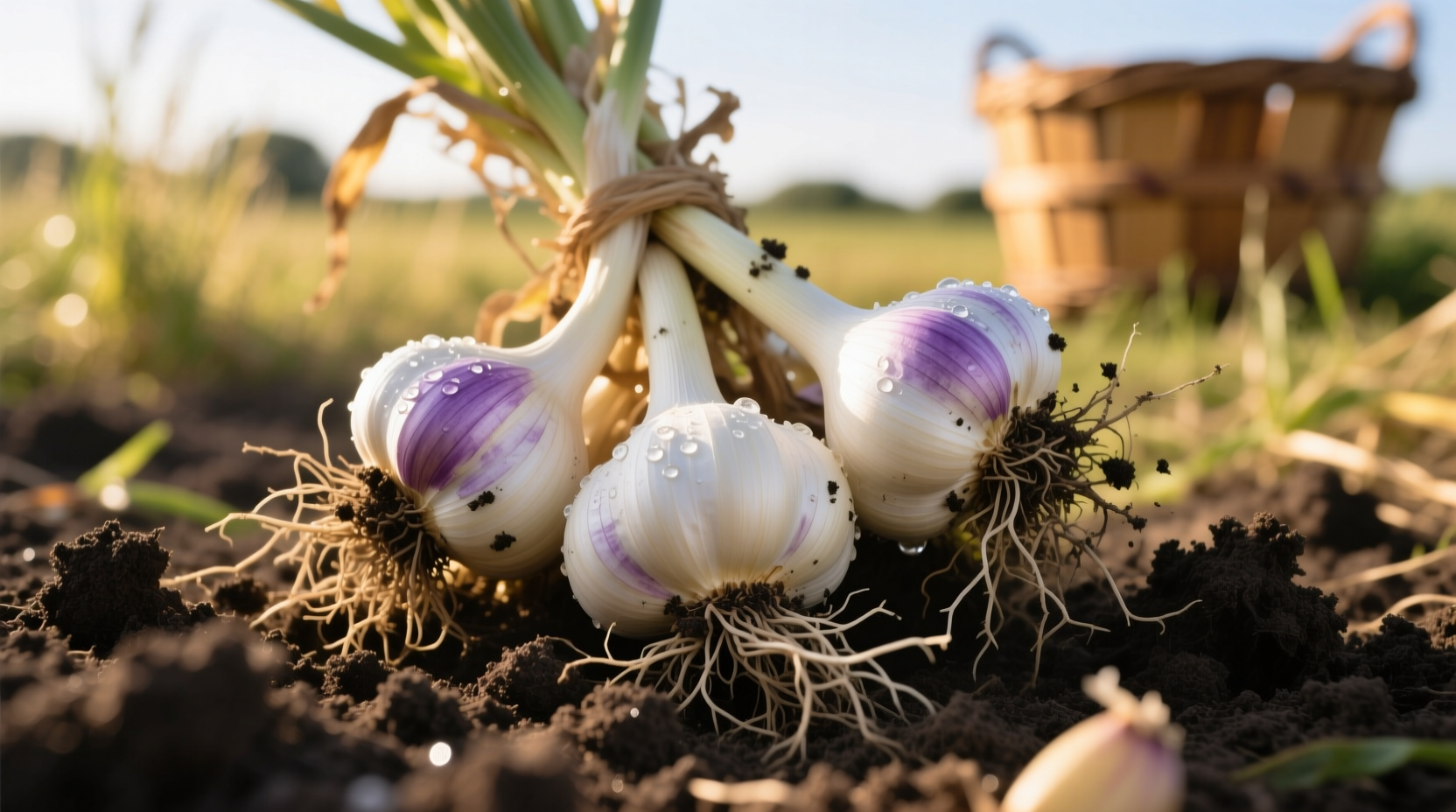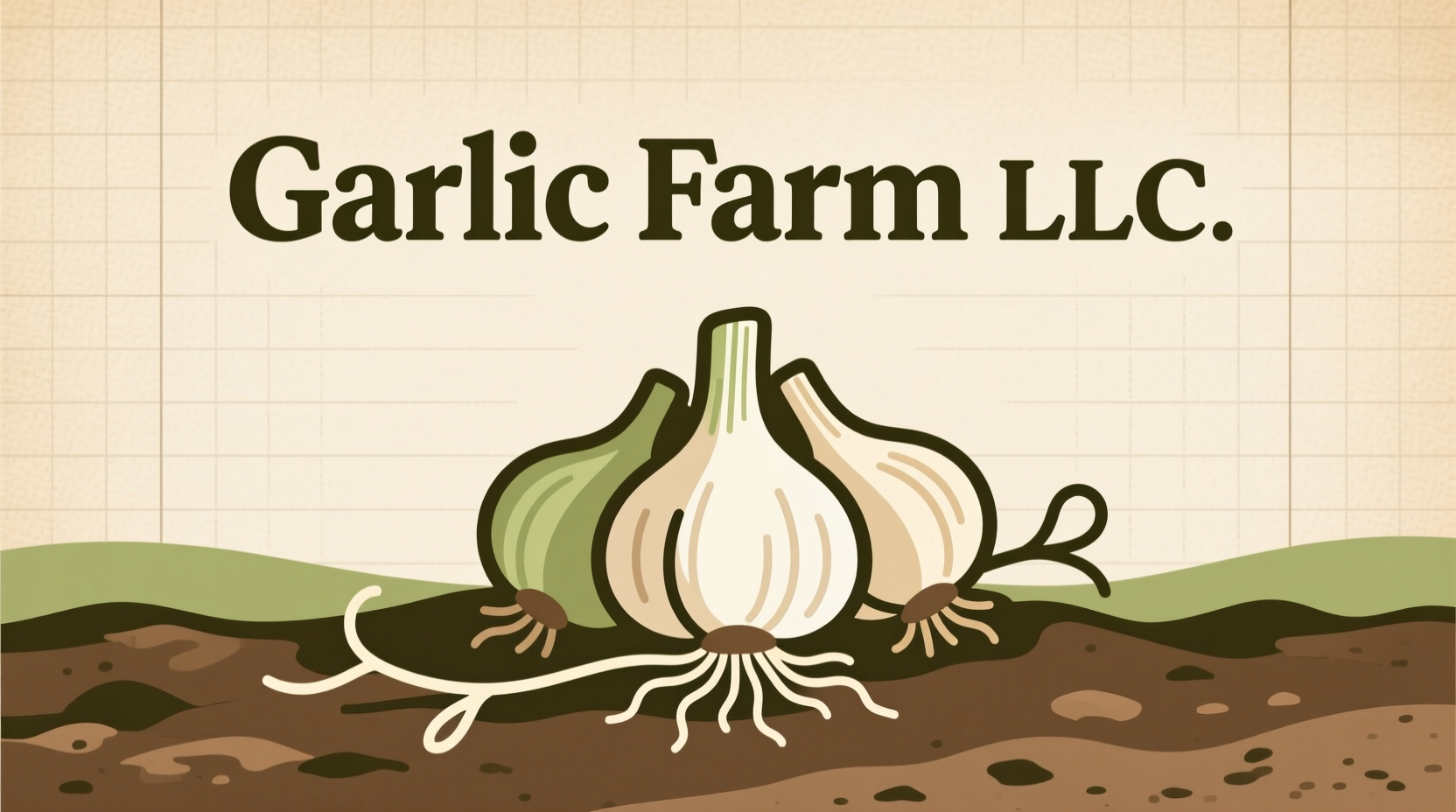When researching garlic farming businesses, consumers need reliable information about production practices, product quality, and business operations. This guide provides factual insights about what to expect from legitimate garlic farming operations structured as LLCs, helping you make informed purchasing decisions while understanding industry standards.
Understanding Commercial Garlic Farming Operations
Garlic Farm LLCs represent a common business structure for agricultural enterprises specializing in Allium sativum cultivation. These limited liability companies combine professional farming practices with formal business organization that protects owners' personal assets while maintaining operational transparency.
According to the USDA's National Agricultural Statistics Service, over 35,000 U.S. farms now produce garlic commercially, with the majority operating as limited liability companies or similar formal business entities. This structure allows farmers to separate personal and business finances while maintaining credibility with wholesale buyers and retail customers.
| Business Structure | Percentage of U.S. Garlic Farms | Key Advantages |
|---|---|---|
| LLC | 62% | Personal asset protection, tax flexibility, professional credibility |
| Sole Proprietorship | 23% | Simplicity, minimal paperwork |
| Corporation | 9% | Investor appeal, established structure |
| Partnership | 6% | Shared responsibility, combined resources |
Data sourced from the USDA Agricultural Census 2022 demonstrates how LLC structures have become the preferred business model for serious garlic producers seeking to establish long-term market relationships while protecting personal assets.
What Defines a Quality Garlic Farming Operation
When evaluating a garlic farm business, several key factors indicate professional operation and product quality. Reputable garlic farming LLCs maintain transparent growing practices, proper certifications, and consistent product standards that distinguish them from casual growers.

Professional garlic farms typically cultivate specific varieties suited to their climate zone. The most common commercial varieties include:
- Silverskin - Long storage life (up to 12 months), mild flavor
- Rocambole - Rich flavor, shorter storage (4-6 months)
- Purple Stripe - Vibrant color, medium storage (6-8 months)
- Elephant - Larger cloves, milder taste, shorter shelf life
The Agricultural Marketing Service of the USDA establishes quality standards for commercial garlic sales. According to their Grade Standards for Garlic, acceptable bulbs must be clean, firm, and free from damage, decay, or abnormal discoloration. Professional garlic farming LLCs adhere to these standards to maintain wholesale relationships.
How Garlic Farm LLCs Operate Through the Growing Season
Understanding the seasonal timeline of commercial garlic production helps consumers recognize legitimate farming operations. Professional garlic businesses follow established agricultural calendars that vary by climate zone but maintain consistent patterns.
Commercial Garlic Production Timeline
- September-October: Planting cloves in prepared beds
- November-March: Winter growth period with mulch protection
- April-May: Active growth phase, weed management
- June-July: Harvesting when lower leaves yellow
- August: Curing process (2-3 weeks in dry, ventilated space)
- September: Sorting, grading, and packaging for market
This production cycle, documented by land-grant universities like Cornell's Cooperative Extension program, demonstrates why legitimate garlic farming requires year-round planning and labor. Businesses claiming fresh garlic availability outside normal harvest seasons may be reselling imported product rather than growing locally.
What Consumers Should Verify When Purchasing From Garlic Farms
When considering purchases from a garlic farm LLC, certain verification steps ensure you're dealing with a professional operation. These checks help distinguish established farming businesses from casual growers operating without proper structure.
First, confirm the business maintains proper licensing. All legitimate agricultural LLCs must register with their state's Secretary of State office and obtain necessary agricultural permits. The National Council of State Agricultural Finance Officials provides guidelines for verifying agricultural business credentials that vary by state but generally require:
- Valid business registration with state authorities
- Appropriate sales tax permits for direct sales
- Food handler permits when processing garlic products
- Organic certification documentation if claiming organic status
Professional garlic farming operations also maintain transparent growing practices. Reputable farms welcome visitors during designated hours, provide information about their cultivation methods, and can explain their pest management strategies without hesitation. The Sustainable Agriculture Research and Education program documents how successful garlic farms implement integrated pest management that minimizes chemical interventions while maintaining crop health.
Common Misconceptions About Garlic Farming Businesses
Several misconceptions surround commercial garlic production that affect how consumers evaluate garlic farm LLCs. Understanding these helps separate legitimate operations from less professional ventures.
Many believe all garlic is essentially the same, but professional growers recognize significant differences between varieties. The Garlic Seed Foundation, a nonprofit organization dedicated to preserving garlic biodiversity, documents over 600 distinct garlic varieties with unique flavor profiles, storage capabilities, and growing requirements. Serious garlic farming LLCs specialize in specific varieties suited to their region rather than claiming to grow "all types" of garlic.
Another common misunderstanding involves garlic curing and storage. Properly cured garlic requires specific conditions that many small operations cannot maintain. The University of California Cooperative Extension research shows that garlic stored at 32°F with 65-70% humidity maintains quality for 6-12 months, while improper storage leads to sprouting, mold, or dehydration within weeks. Professional garlic farms invest in proper storage facilities rather than claiming "fresh garlic available year-round" without explanation.
Finding and Evaluating Local Garlic Farm LLCs
When searching for legitimate garlic farming businesses in your area, several verification methods help identify professional operations. These approaches ensure you're supporting established agricultural enterprises rather than casual growers.
Start by checking if the business appears in official agricultural directories. Most states maintain local food directories through their Department of Agriculture. Legitimate farming LLCs typically participate in these programs to connect with restaurants and retailers. You can also verify business registration through your state's Secretary of State website, which shows active LLC status and registered agents.
When visiting a garlic farm or their market booth, observe these indicators of professional operation:
- Consistent product quality across multiple visits
- Detailed knowledge of growing practices and varieties
- Proper storage conditions for harvested garlic
- Clear labeling with business name, address, and contact information
- Documentation available for certifications (organic, etc.)
Professional garlic farming LLCs understand that transparency builds customer trust. They'll readily discuss their growing methods, challenges faced during the season, and what makes their product distinctive. This openness reflects the business maturity expected from established agricultural enterprises operating under formal LLC structures.
What distinguishes a legitimate garlic farm LLC from casual growers?
Legitimate garlic farm LLCs maintain formal business registration with their state, operate under established agricultural practices, provide consistent product quality, and can document their growing methods. They typically participate in official agricultural programs and maintain proper storage facilities for harvested garlic.
How can I verify if a garlic farm business is properly registered?
You can verify a garlic farm LLC's registration through your state's Secretary of State business search portal, which shows active business status, registered agents, and formation dates. Legitimate agricultural businesses will also appear in state Department of Agriculture directories and maintain necessary sales tax permits.
What should I look for when purchasing garlic directly from a farm?
Look for firm bulbs with tight skins, minimal root growth, and no signs of mold or sprouting. Professional garlic farms store their product in cool, dry conditions and can explain their curing process. They'll provide clear labeling with business information and be knowledgeable about their specific garlic varieties and growing practices.
Do all garlic farms grow organic garlic?
No, only farms that have completed the USDA organic certification process can legally sell certified organic garlic. This rigorous process takes three years and involves annual inspections. Many quality garlic farms use sustainable practices without pursuing formal organic certification due to the expense and documentation requirements.
When is the best time to buy fresh garlic from local farms?
The best time for fresh local garlic varies by climate zone but generally runs from late June through September for most U.S. regions. After harvest, garlic requires 2-3 weeks of curing before reaching optimal storage condition. Farms selling "fresh" garlic outside this window are likely reselling imported product rather than harvesting locally.











 浙公网安备
33010002000092号
浙公网安备
33010002000092号 浙B2-20120091-4
浙B2-20120091-4